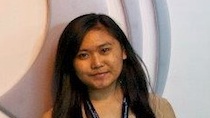SUMMARY
This is AI generated summarization, which may have errors. For context, always refer to the full article.
 Ever heard of narcotizing dysfunction?
Ever heard of narcotizing dysfunction?
It’s a negative effect of media consumption wherein an individual develops a dangerous illusion of active participation simply by knowing a lot about social issues, mindlessly supposing that knowledge expansion is tantamount to political action.
This illusion, according to Paul Lazarsfeld and Robert Merton, is dangerous because it prevents us from tapping into the proactive solutions available in our community.
In their own words, Lazarsfeld and Merton wrote: “That the mass media have lifted the level of information of large populations is evident. Yet, quite apart from intent, increasing dosages of mass communication may be inadvertently transforming the energies of men from active participation into passive knowledge.”
At a time of what seems to be information overload brought about by the worldwide Web, it is hard not to suspect that this dysfunction plagues most of us netizens who constitute our society’s well-educated middle class.
The educated middle class always has something to say on every topic imaginable. But the truth remains: knowledge does not substitute for action.
A discourse on the evils of carbon atmospheric concentration helps very little if you’re not actually cutting down on your own carbon emissions.
Being familiar with the narrative of the Arab Spring doesn’t mean we’re advocates of democratic reform. Knowing about China’s oppression of the Uighurs and the Tibetans doesn’t make us human rights activists.
The power of social media
Is liking a Facebook page on agrarian reform tantamount to joining advocates in their nationwide rally? Is tweeting about the forests in Palawan going to change the value system of our country’s illegal loggers? Is a concerned netizen equal to a concerned citizen?
I’m quite sure it isn’t yet, but that doesn’t mean it cannot be. It is up to us to harness technology so that its utility might be for the better and so that the net gain utility-wise makes up for the limitations of the medium. The challenge is to constantly innovate and pursue ways by which we can use social media to advocate for reform and mobilize communities.
This is not just a rehash of the concept of technology being neutral, as I don’t believe it in its absolute sense. I think that in many ways the medium is the message, too.
Social media as an agent of social change affirms both contrasting viewpoints about technology. The unique features of the Internet – cross-border exchange, interactivity, hyperlinking, ability to select which content to access – shape who we are. At the same time, we can use these features either to produce good social outcomes or to serve our own self-interests.
The burden is not so much on social media (given that it is inherently a powerful channel of distribution), as it is on the people using it. What will you choose to do as a social media user who is privileged to be both a consumer and a producer of online content?
Raising the quality of discourse
My professor tells our class that social media is plagued by exhibitionists, that it has fostered an overpopulation of celebrity-wannabe’s.
True. Social media feeds on our self-absorption.
This is why responsible online journalism exists and must exist. To infuse mechanisms of quality control in a rather free-for-all environment. To establish the same “confidence in the source” as the reason why users access sites. To set the bar higher for Web-based content. To glorify the truth-seeking communicators over the “exhibitionists” and “celebrity wannabes.”
Online journalism, through the use of various forms of social media, seeks to diversify and hopefully raise the quality of discourse on the Internet.
The interactive feature of social media makes it easier for people to air their views and responses. Quite conveniently, we are able to enter what used to be the exclusive domain of the media. More importantly, we are able to set the agenda according to what matters to us, and frame the agenda in a way that it reflects our collective voice.
Heightened public scrutiny
Do you remember that local clothing retail brand whose main goal in its “mix” campaign was to sell fashion pieces but which instead ended up spurring the online community to a commentary on racial politics and national identity? Or the bias for fairer skin tones being propagated through local advertisements?
Years ago, the same set of advertisements wouldn’t have earned the ire of many Filipinos. We wouldn’t have read into those subtle messages and just taken in whatever was being fed to us.
Media messages have long been creating “new cultural items” to which we have passively adapted to. It is indeed sad when these messages reinforce bigotry and negative stereotypes, glamorize crime and delinquency, or endorse forms of relative morality that harm both self and society. It is even sadder, though, when people fail to scrutinize these messages.
We are no longer passive consumers of content. We have become more critical of what we read and what we see. I’m guessing this is not solely because of a positive change in the quality of our education, but is also because we have integrated ourselves into a culture of shared knowledge through the Internet.
The Internet should be hijacked for the good. It is perhaps the only place where the thoughts of those privileged with more experience and education can be freely accessed by those with less privilege, where the concern of one through a single click of the mouse can become the concern of many, and where the struggles of people from the other side of the globe are transported straight to wherever your laptop is.
Through the Internet, responsible civic engagement can potentially spread like wildfire if only we choose to allow it. – Rappler.com
Buena Bernal is a senior Journalism student at the University of Santo Tomas. She was also a former intern of Rappler.
Add a comment
How does this make you feel?





There are no comments yet. Add your comment to start the conversation.